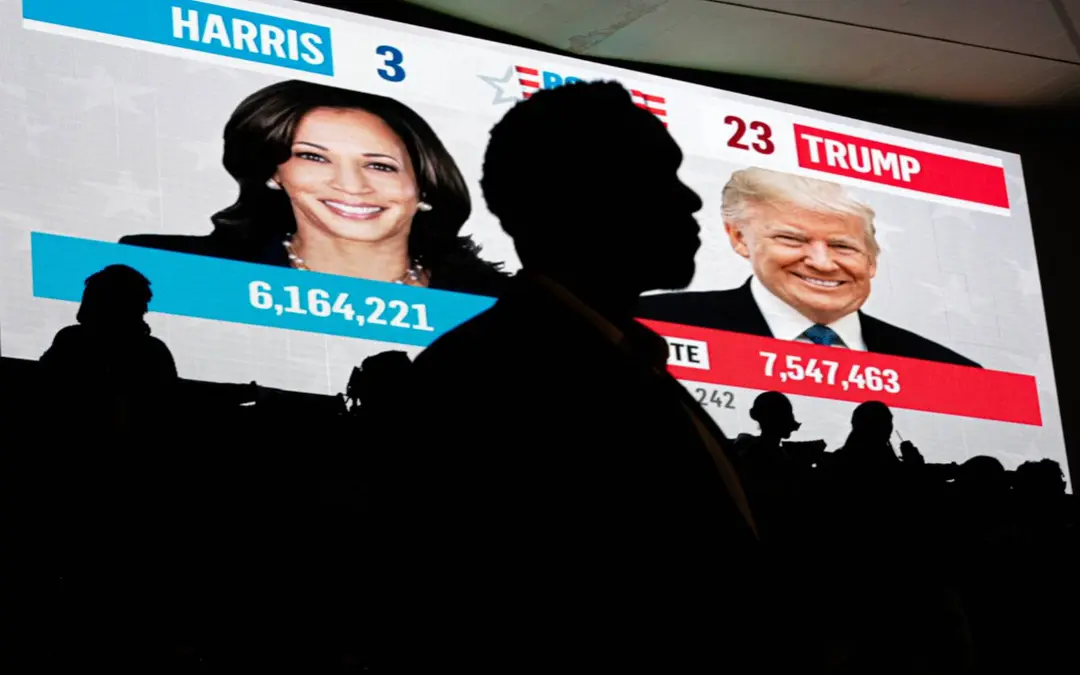
The results of the 2024 Presidential Election came as a surprise to many across the world, with former President Donald Trump winning by 312 electoral college votes to Kamala Harris’ 226.
The role of self-branding throughout this election was indisputable, with both Trump and Harris cultivating highly distinct and influential public personas, shaping how they are perceived by the electorate. In an era of social media dominance and increasing societal polarisation, their ability to develop and maintain these brands directly impacted the results we saw on November 5th, 2024.
President-Elect Donald Trump
Trump’s self-branding has always been heavily centred around his identity as a bold businessman and political outsider, with the expressed capitalisation on his persona as a no-nonsense leader who speaks openly, and often provocatively. His brand embodies power, wealth, and a populist message, appealing to voters disillusioned by traditional politics and jaded by the governance of the Democratic party. His slogan “Make America Great Again“, is his rallying cry for a return to a perceived stronger, more unified America, evidently appealing to the many citizens who wish for this type of ruthless leadership.
This brand of resilience is built on confrontation and defiance, seeing him position himself as someone who thrives in the face of criticism and controversy. Whether it’s attacking the media or dismissing legal challenges, Trump maintains a tough, unwavering public persona. This “Teflon” quality has helped him bounce back from numerous scandals, with his image untarnished in the eyes of his loyal voters, positioning him as a figure unafraid to challenge the system.
Trump’s communication is marked by its boldness and direct nature, his frequent use of social media allowed him to surpass conventional filters, fuelling his image as a strong and unfiltered voice of the American people. His brand thrives on controversy and aggressive rhetoric, often attacking political opponents and the “deep state“. His populist style (coupled with frequent references to his wealth and success) reinforces his image as a leader who is not going to feel intimidated.
This brand resonates with a segment of the population that feels alienated by globalism and elite political structures. His supporters tend to value decisive and strong leadership, appreciating his rigid focus on traditional American values. His persuasive oratory often appeals to nationalistic and anti-establishment ideologies, particularly targeting working-class voters and those who feel left behind by changing demographics and the promotion of international expansion.
Vice-President Kamala Harris
Harris, by contrast, places emphasis on her diverse identity, including her being the first female, Black, and South Asian Vice-President. Her self-branding is rooted in accessibility, relatability, and a message of progression. Unlike Trump, she focuses on empathy, expressly using her cultural background and identity to resonate with underrepresented communities across the States. Her strategic shift to using her first name, “Kamala“, enhances her image as an approachable figure, setting her apart from formal political norms, particularly the juxtaposing image of power and supremacy Trump wishes to display.
Although Harris’ communication style is more formal, she keeps her relatable tone, balancing professionalism with moments of vulnerability, particularly in her public speaking and social media presence. This sees her lean further into her cultural identity and femininity, where she seeks to foster connections through authenticity. In contrast to Trump’s confrontational tone, Harris adopts again, a more inclusive, measured approach, focusing on calls for unity and shared values.
Harris’ brand resonates with younger, more diverse demographics who see her professional and political rise as a source of inspiration, her message of inclusivity and diversity seeks to attract those who are craving systemic change, particularly concerning issues of healthcare, climate change, and social justice. Taking a leaf from Trump’s media book, her team’s engagement with pop culture on social media platforms depicts further her campaign’s focus on the connection with younger audiences. Further, her ability to maintain composure under pressure and advocate for marginalised communities solidifies her brand as a leader focused on the healing and progression of governance and politics in the United States.
The Results
While both Trump and Harris have effectively used self-branding to cultivate loyal followings, ultimately, it was Trump’s ability to reinforce his brand as an unyielding leader who championed the concerns of voters that propelled him to victory. His unwavering messaging and the portrayal of Harris and the Democrats as out of touch with the American people proved more compelling to the voters that mattered most in swing states. As a result, his brand’s appeal to the electorate in key battleground states ultimately made the difference, cementing his win in the 2024 election.



Average Rating